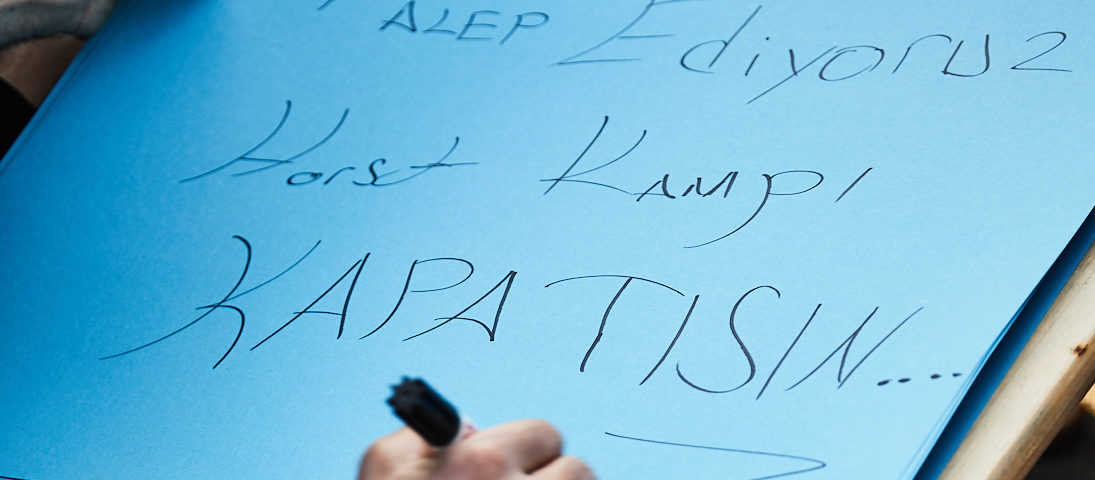Sometimes it is difficult to report on these encounters. We name the same grievances (which those in charge keep denying) and repeat the same demands (which those in charge keep ignoring).
Sometimes it is easier to simply repeat what people in Horst tell us. That's what we're trying to do here today, and at the same time we invite you to come to the next gathering and hear it for yourselves. We have taken the following information from today's conversations. There are reports from people, who have all been forced to live in the arrival center for several months.
Racism is a part of everyday life
For some people, life in Horst is easier than for others. Some are whiter than others. For some there are contact persons in their first languages (Russian, Farsi, Arabic). For others there are none. Black asylum seekers experience more open racism than others in the camp, but also during walks around and in the nearest towns. Racism is sadly a daily routine. Being ignored, shoved or reduced to the residence status.
Racism is: "We are in Germany. Speak German!" from those who are supposed to support you in everyday life, when you are only in Germany for a few days (!) or weeks.
Racism is: not getting medical advice, because a staff member refuses to give her answers in English (while she obviously understands the questions). Racism is when no one listens or tells you what is going on.
People wither away
Everyday life in Horst is so monotonous. People have to deal with the same menu, every week. The same meal times, every day. The same sausage-and-cheese mix every morning and every evening. Not the slightest variations are made. No school, no proper German course, no employment. Ridiculously slow internet. 3 months, 6 months, 18 months, even longer.
It stultifies, it simply robs life energy. The thoughts are circling - About what one has experienced; about what one has left behind; about what may come. There is no perspective, or announcement of what to expect. How long you will be in Horst? Where will you go afterwards.
There is no help. "Sorry, I can't help you", is a sentence that the staff of the facility seem to repeat stoically. An absurd content for a job called "social worker". I - can't - help - you. German prisons are supposed to be better than this monotony. You run into walls, try to change something, but nothing happens. "It turns us into emotional cripples.” The camp system trims people down into people who do what they are told to. For instance, 80-cent jobs (involuntary, of course). Doing nothing. Endure. Wait and see. Wait and see. Wait and see. You lose hope and the desire to live.
The asylum system in Germany:
On Sunday someone described the asylum system like this: "Imagine you are at a train station. Outside, on the street, with nothing. Someone comes and says >Hey, I'll help you, come home with me<. He takes you to his home - but he leaves you outside his door, on the street. You wait. When you start throwing small stones at his window to draw attention to yourself, he shouts at you. And then you just keep standing outside of his house. Still outside, left on the street."
Our response: solidarity
This world is broken and so is the system we live in. What brings us to Horst is the possibility to get in contact with incredibly strong people who have walked the path this far. Someone who enters our gathering with the words "Oh, shit! Erdogan!" and then spends an hour reporting on her activities. Someone who fought against the monarchy in Thailand. Someone who resists the suppression of her artistic freedom in Iran. Someone who openly reports on the grievances in Horst.
The next gathering in Horst is on 25 April, 1-4pm.
Form car gangs and come along.
If you have any ideas for action, write us beforehand and bring them with you.

